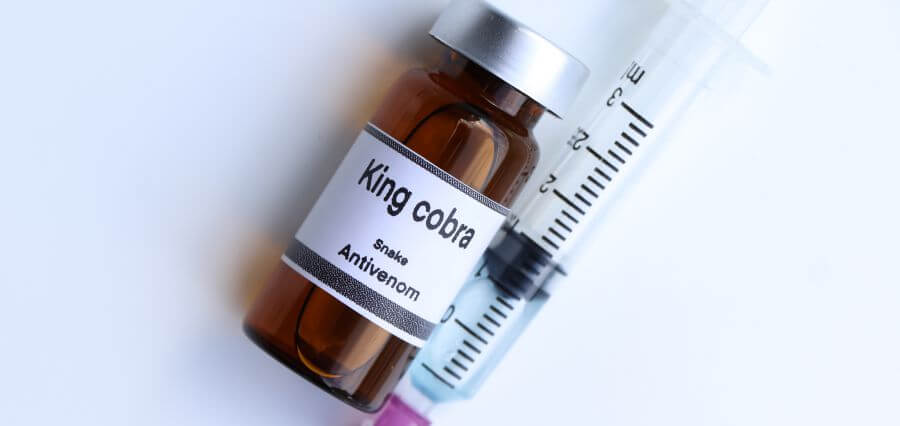Heparin, a common blood thinner, has been identified as a potential inexpensive antidote for cobra bites, significantly reducing injuries caused by the venom, according to recent research findings.
Cobras are responsible for thousands of deaths worldwide each year, and about 100,000 people suffer from necrosis, the death of body tissue and cells, caused by their venom, which often leads to amputation. Current antivenom treatments are costly and ineffective in treating the necrosis at the bite site.
Professor Greg Neely, a corresponding author of the study from the Charles Perkins Centre and Faculty of Science at the University of Sydney, stated: “Our discovery could drastically reduce the terrible injuries from necrosis caused by cobra bites – and it might also slow the venom, which could improve survival rates.”
Using the gene-editing technology CRISPR to explore ways to block cobra venom, scientists repurposed heparin and related drugs, demonstrating their ability to prevent necrosis from cobra bites. Tian Du, a PhD student and lead author from the University of Sydney, noted: “Heparin is inexpensive, ubiquitous, and a World Health Organization-listed Essential Medicine. After successful human trials, it could be rolled out relatively quickly to become a cheap, safe, and effective treatment for cobra bites.”
The study revealed that unlike current antivenoms, which are based on 19th-century technology, heparin and its derivatives (heparinoids) act as a decoy antidote. By flooding the bite site with decoy heparin, the antidote binds to and neutralizes the venom toxins responsible for tissue damage.
Professor Nicholas Casewell, co-author and head of the Centre for Snakebite Research and Interventions at Liverpool School of Tropical Medicine, emphasized: “Snakebites remain the deadliest of neglected tropical diseases, overwhelmingly affecting rural communities in low- and middle-income countries. Our findings are exciting because current antivenoms are largely ineffective against severe local envenoming, which involves painful progressive swelling, blistering, and/or tissue necrosis around the bite site. This can lead to loss of limb function, amputation, and lifelong disability.”
The World Health Organization (WHO) has prioritized snakebite in its neglected tropical diseases program, aiming to reduce the global burden of snakebites by half by 2030. Professor Neely added: “That target is just five years away now. We hope that the new cobra antidote we found can assist in the global fight to reduce death and injury from snakebites in some of the world’s poorest communities.”





